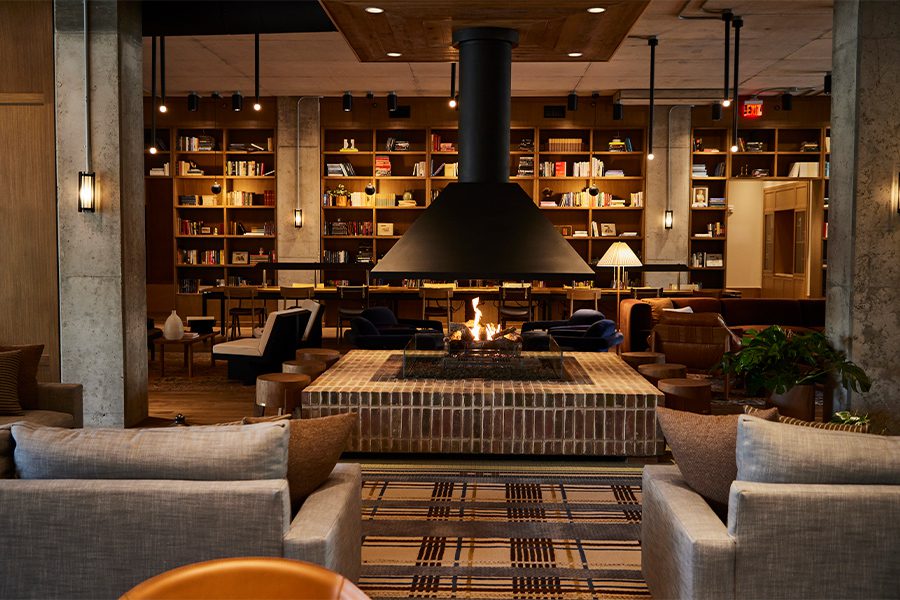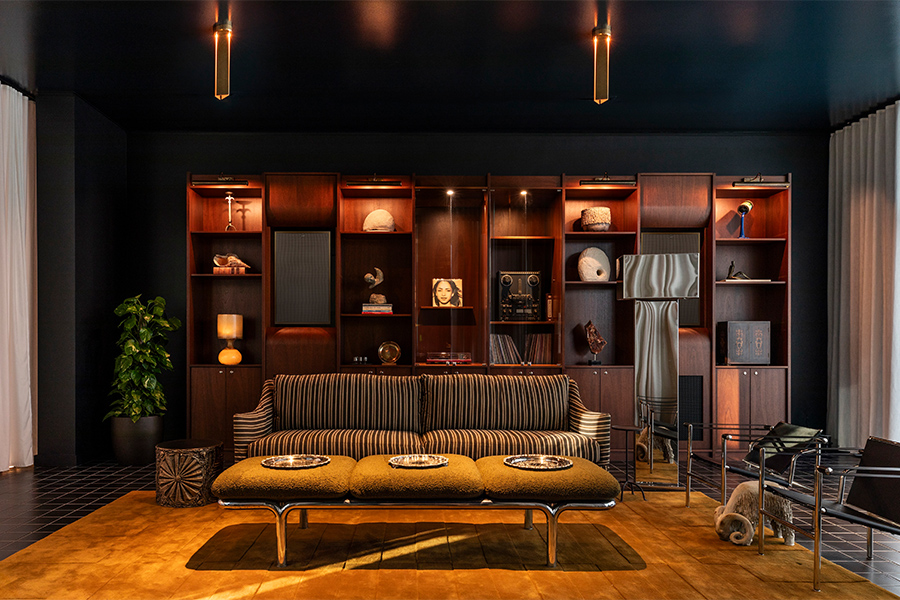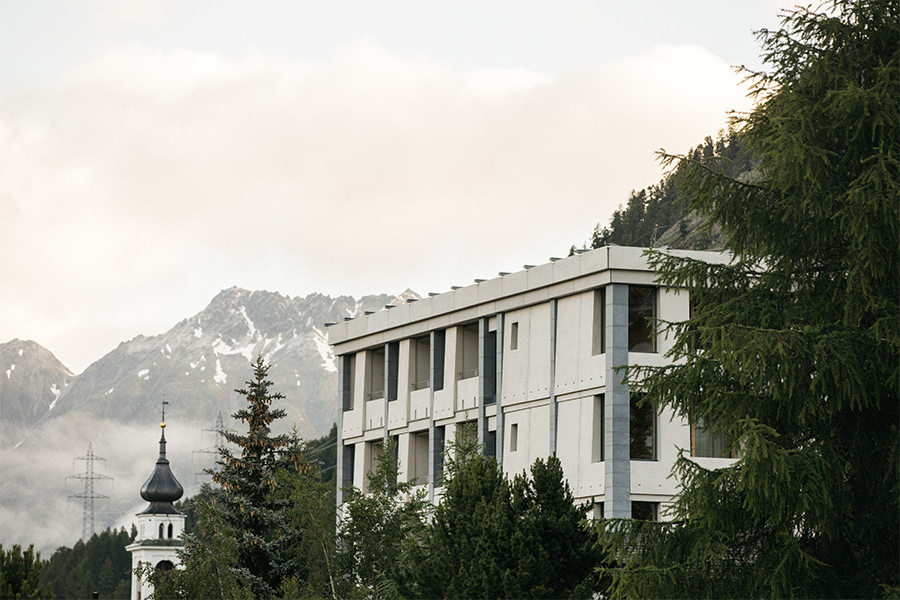Located west of downtown in Columbus, Ohio’s up-and-coming arts-focused Franklinton neighborhood, the Junto opened this summer as the city’s first independent lifestyle hotel.
The brainchild of locally based hotel ownership company Rockbridge and operator Makeready, the 198-room property is part of the area’s larger revitalization project, and the design enhances its place in the community. Take the Trade Room, which is an evolution of the hotel lobby. The gathering space offers intimate seating nooks, workspaces, and F&B options to entice guests and locals alike.
Here, Makeready president and COO Christine Magrann shares the inspiration behind the property.
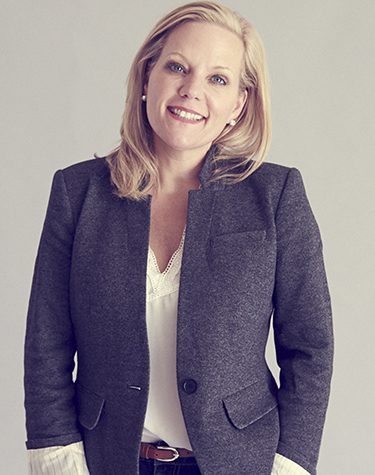 Why was it time for Rockbridge and Makeready to open a hotel in Columbus?
Why was it time for Rockbridge and Makeready to open a hotel in Columbus?
Christine Magrann: We’ve built a lot of special hotels and restaurants in multiple cities, but never right in the backyard of where [Rockbridge CEO] Jim [Merkel] grew up, which is also the home of Rockbridge. Columbus has a lot of strong visionaries who are committed to its growth. The economic growth is strong, and there’s this huge creative community there as well. The coupling of all those pieces made us feel like this is a great time for us to launch an independent hotel there. Jim is an owner who is deeply committed to creating something very special, and he’s so prideful of his hometown. He wants to have a lot of conversation about the why and what he’s trying to create. We spent [a lot of time] on the Junto ensuring that we were aligned, and we were talking about all the details because so much of building an independent hotel is getting the story out there.
What was the process of getting this hotel off the ground?
CM: The area of Franklinton is a little west of downtown. We felt like this was a special area for us to go into because they’re looking to bring back and revitalize it. The goal for Franklinton is to be a neighborhood where people can live, work, and play. There’s been a lot of effort over the past several years to connect downtown Columbus into this Franklinton area and beautify it with bridges, green space, pedestrian spaces. The combination of the commitment to keeping the gritty creativeness to Franklinton, but also creating a pedestrian balance with residential felt like the right place.
How did you come up with the name Junto?
CM: Benjamin Franklin is one of the reasons why the neighborhood is called Franklinton. As we were looking at the location, we started learning a lot about Ben Franklin and thought the property should have an inspiring name. Franklinton is west of downtown, and the idea of heading west has a very prosperous sensibility to it. In 1727, Ben Franklin created the Junto Club for mutual improvement. Our goal for the Junto is to bring people together, connect them, and inspire them. That’s how the Junto came about because Jim had a vision to bring people together—to be part of a community that is being revitalized. We wanted to create a place that brings people together and inspires conversations.
What kind of spaces in the hotel speak to that community-driven aspect?
CM: Our Trade Room, which is our lobby, is designed to bring people together and to connect over conversation. We designed a flexible furniture layout, and we have large, beautiful sectional sofas for larger groups. We have several worktables where people can come and make it their office for the day. Then, we have more intimate, tucked-in settings for more personal conversations. We intentionally designed the front desk to be a little bit tucked away, so that we could create a residential atmosphere upon arriving through our front door.
When you walk into the Junto, it has a warm, connective sensibility. When we’re designing hotels, we focus a lot on creating spaces for social and community events. The spaces have large, open floor-to-ceiling windows. A lot of outdoor space was intentionally designed on the first floor and on the rooftop to bring the outdoors in. We also spent a lot of time in the community, and we partnered with some local artisans, including glass blowing artist called Glass Axis, which created a beautiful custom chandelier [in the Trade Room].
You have a lifestyle curator on staff. What is their role at the hotel?
CM: They work to foster deep connections and partnerships within the community to create activations and programming. The goal of each one of those activations and programming is to bring people together. It’s anything from our Trade Room talks to mushroom foraging. They go into the community and find these unique influencers. It’s about partnerships and storytelling.
Do you have a favorite moment or spot or in the hotel?
CM: There are several, but I would say Little West Tavern. We have this beautiful wood-fired hearth, and it’s one of the most special seats within the hotel.
What are some of the challenges and benefits of operating an independent hotel?
CM: One of the benefits is freedom from restrictions. We’re able to build independent brands that can be connected to our guests without all the brand restrictions and guidelines. We’re also able to build very strong relationships within the local community. When you get it right, there’s a lot of financial success. It creates far greater longterm value for the asset and the community.
But the challenges are very real when you’re trying to create a one-of-a-kind brand. It takes robust storytelling and strategy. It’s harder because you’re launching an entirely new concept. Putting in the time, sweating those details is a much longer process than it is when you have a brand that you can lean into. The other big challenge—and the reason why we spend so much time on the brand story—is you have to gain the guest’s trust.
How have you seen the industry change since Makeready was founded in 2015?
CM: We are sharing far more with our guests than we ever have. We spend a lot of time on social media to surprise people checking in [with thoughtful moments]. There’s also a lot more employee empowerment. We are allowing our employees to be a little freer with decision-making. Hopefully, it helps them to learn to be more curious.
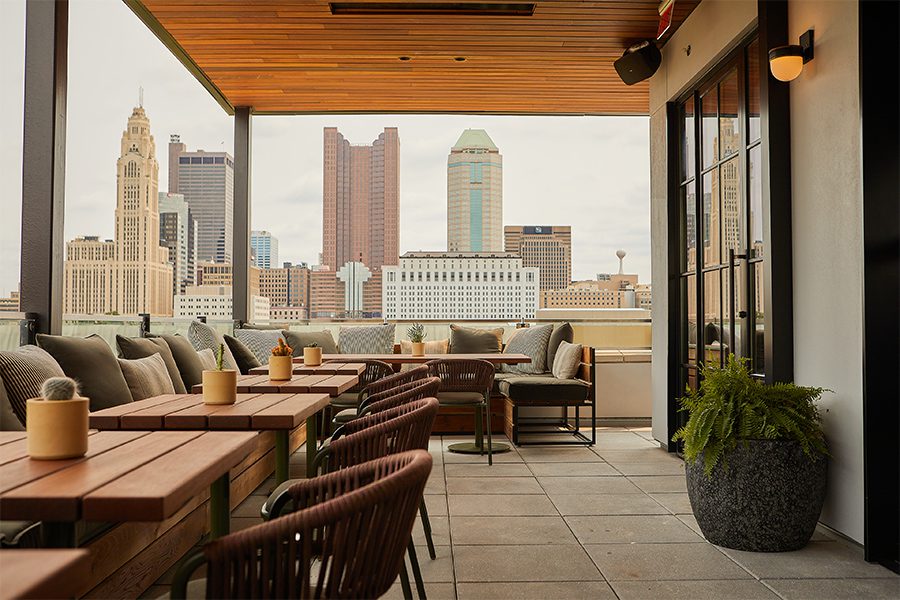
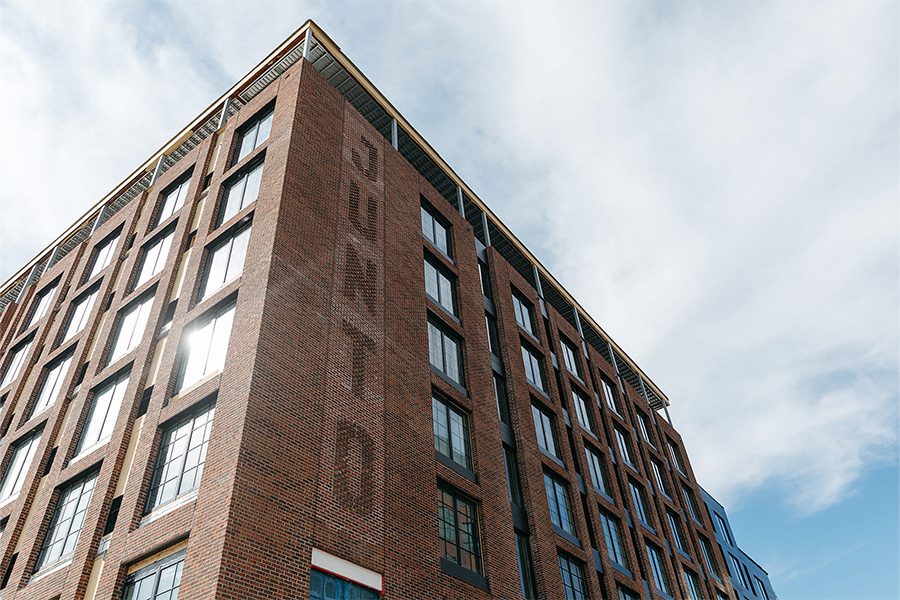
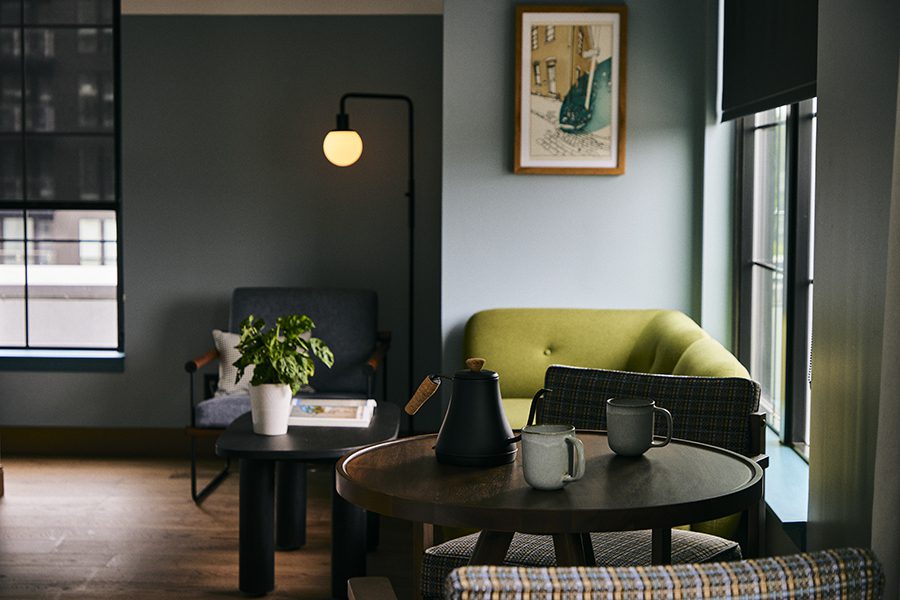
More from HD:
Luxury Senior Living Moves Into Metropolitan Areas
The Hospitality Industry Makes Strides in Sustainability
HDTV Tours the Penny Williamsburg in Brooklyn

